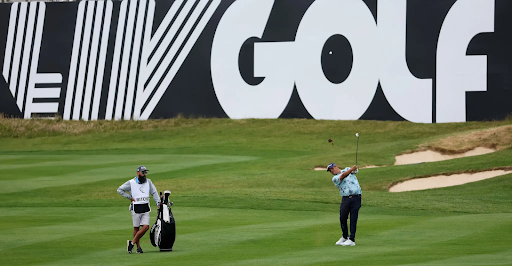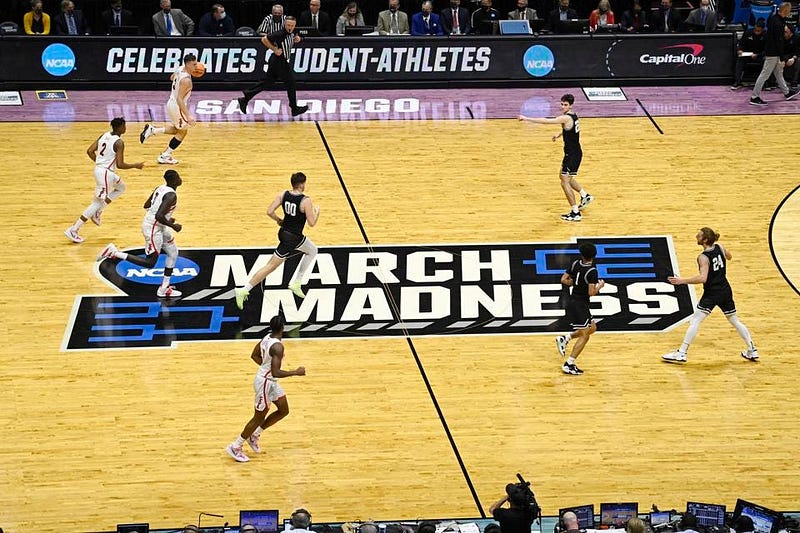
Photo by Matthew Lewis/Getty Images.
It has been two pretty sleepy months in the sports world. After three years of near constant play due to pandemic-muddled schedules, the flow of sports content has gone from a flood to a trickle. Outside regular season baseball, all has been calm in the sports world before football starts up in September. However, only looking at games played ignores the underlying shifts. What we have seen is a movement in the balance of power, shifting away from leagues and towards the players and teams that make up those leagues. Why is this happening? Is this good or bad? What does this say about us as sports fans?
LIV Golf, the new Saudi-backed venture has continued to poach from the rival PGA tour. With massive paydays for the likes of Brooks Koepka and Phil Mickelson, the new tour has drawn the ire of golf legend Tiger Woods and others who see LIV as sportswashing, a practice wherein sports are used to prop up the reputation of a shady backer. The World Cup, for example, has been held in countries known to undermine basic human rights like Russia, Qatar or Texas.
College football has been shaken by the news of Texas and Oklahoma joining the SEC in 2024, as well as USC and UCLA joining the predominantly midwestern Big 10 in 2025. Traditionally, we think of College football as a regional sport made up of century-old rivals. Realignment threatens that thinking. Instead, the SEC and Big 12 are now bundles of TV rights to be sold to networks.
Across the pond, UEFA has approved a new Champions League format with a new selection formula that would give more spots to rich clubs that have recently underperformed. The new format does away with the group stage, instead guaranteeing each club 10 games before the knockout round instead of the six under the current system. Thus, there will be more games of elite clubs playing each other and more big games that can be sold to broadcasters.
This expansion replicates some aspects of the failed “Super League” concept that sought a closed league keeping all of the revenue with Europe’s top clubs. This new format highlights a critical issue across sports today: too many games. With a packed schedule, athletes are pushed to the absolute limit, resulting in otherwise preventable injuries. In early 2020, Liverpool Manager Jurgen Klopp played his Youth Squad for a critical FA Cup match to rest his best players. The hallowed century-old tournament lacks the cache of a Premier League title or a Champions League final. Thus, footballing tradition was triumphed by money.
What do these instances have in common? They illustrate the increasing decentralization of some sports. We are used to concentrated leagues, especially in America. In the NFL, perception of the league matters. Teams may vie for the Super Bowl, but upholding the league is what matters above all. The same is true of the MLB and even the player-friendly NBA. In these leagues, there is one central championship that all teams compete for. In these leagues, the commissioner is a celebrity pushed to the center of league discussion for good and for ill. He represents the owners in labor discussions, he negotiates the TV deals, he is the face of the league. Owners have salary caps, share revenue and ultimately put the collective success of the league over the individual success of any one team.

Contrast this setup with the three sports mentioned at the beginning. Here, competitors vie for a multitude of trophies and cash prizes. Think about the Bowl Schedule in college football; the four “Majors” in golf or the endless club, cup, continental and international fixtures in Association Football. More competitions is good for clubs as there are more chances to win, and it is good for networks because it is another big game to broadcast. The only one who suffers is the league, who cannot claim to be the center of attention.
Nobody cares about the presidents of UEFA or the NCAA until there is a scandal that needs to be answered for. Why? Because that is all they really do. The president of the NCAA needs Alabama more than Alabama needs the NCAA. They are happy to look the other way or give paltry sanctions when powerhouses pick easy schedules or pay players under the table because the big schools are their meal ticket. UEFA approved the new UCL format because they need to appease the big clubs who nearly destroyed the league just two years ago.
How do fans factor into all of this? How should we feel about our teams rejecting established tradition in order to chase paychecks? I do not really know how to answer this question. For instance, I am a New York Jets fan. I’ve worn their merch, watched their games and would even attend them if Metlife wasn’t the worst stadium in the league not owned by Dan Snyder (story for another time). I am not rooting for the league itself. I hate most of the owners and the commissioner especially. I want the Jets to win, not the league. At the same time, I also do not want them to sell out, and therein lies the problem.
Most American sports have a salary cap so that no one team spends more than the others, maintaining parity and saving the owners money. Most teams in decentralized leagues lose money as they attempt to outbid each other. This is possible so long as you are bankrolled by foreign oligarchs or do not pay your players (see college sports). Asking my New York Jets to outbid is inherently asking them to sell out.
We have entered a new era of fandom not just in sports but also in media and culture. We are all, at the end of the day, fans of something, someone, somewhere. The fan is the perfect customer because they will always return regardless of performance or quality (this article was written by a Knicks fan). When all of the things you love are owned by massive corporations, you are inevitably rooting for a shady man in a dark suit. We may hate this, but I still want mine to win.
















